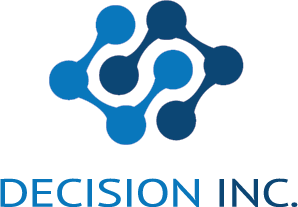BLOG | GENERATIVE AI
Doctors and Lawyers the next toll booth?
Original article source: The Canberra Times
ONE of the more foreboding discussions around Generative AI (GenAI) is around the disruption, or displacement, of jobs.
People in the media and advertising space have expressed concerns, but these may be overblown: I don’t foresee an instance in which GenAI is busting open the Eddie Obeid scandal or doing a Teacher’s Pet-es-que podcast anytime soon. And one can quickly spot a ChatGPT-written piece (ever noticed they always start with “in today’s fast-changing landscape”, or something to that effect?) or a Dall-E drawn image a mile off. That may change, but for now the status quo is OK.
However, there will be disruption if not complete displacement of some roles or responsibilities in the future, and many of us will have to adjust. So I took a look at the most in-demand courses across Australia, according to the University Admissions Centre, and how GenAI – or Al more generally – might impact those students’ future.

Medicine
Instinctively, one would think doctors, surgeons and those studying and applying medicine would be immune; it’s among the hardest degrees to undertake, reserved for the highest ATARs in the country. But this is one of the disciplines most ripe for disruption from Al.
Yes, Al could help with education – doctors need to stay up-to-date with medical research and often read journals weekly or monthly depending on the profession, and Al could shorten the required reading by multitudes. But in theory Al can do some of a doctor’s actual job for them. It could analyse symptoms – (in other words, data) and things such as blood levels, hean rates, blood pressure and more (again, data) – and compare it against historical precedents and other symptoms to deterrnine a diagnosis more accurately than a human.
Harvard is already citing “remarkable progress in tasks such as diagnostics, data analysis and precision medicine and is already being applied in areas ranging from patient triage to cancer detection”.
Now, could Al undertake unassisted, unattended surgery? Well, it’s already made its way into operating theatres as a valuable assistant, and robots are undertaking surgeries now, albeit under the complete control of the surgeon. Thus it’s indeed possible to envision unassisted Al surgeries in the future.
Business/Commerce
The beauty of these degrees are that the definitions of business and commerce are broad – and for the foreseeable future we’ll all need businesses and commerce of some kind. The moment we don’t need these is when we’ve realised a utopia in which none of us work, with everything provided by the machine. And while I’m not ruling that future out, it’s not likely to emerge during the careers of those undertaking and using knowledge gleaned from a bachelor of business or commerce degree.
These degrees teach a broad brush of skills; everything from accounting and finance to marketing and event management, data analytics and more. And while Al can undertake many aspects of these skills, having a knowledge of their importance and application is required to effectively start or manage a business.
Arts
Instinctively, this discipline feels like the most susceptible to Al, as there’s no true set career to undertake afterwards. But that ac-tually might protect it from Al more than we think. In theory, it’s a bachelor of knowledge – and depending on the syllabus students learn everything from performing arts to sociology, and history to human services.
Yes, Al can do great things – even create art – and it has a knowledge base that far surpasses what our brain can store and process. But a jack-of-all-trades degree can widen the employment pool and allow students to dive into something that they’re both passionate about and with jobs available to them. With Al set to displace many, having a degree which helps us understand humanity may hold students in good stead when they step out into the world.
Law
Given its high degree of difficulty to enter, law, much like medicine, would seem to be immune from Al displacement. But law is a series of precedents, forms, evidence, and other information which can inform arguments and decisions. ln other words: data.
Take conveyancing: the legal transfer of a property’s ownership between the seller and the buyer. Conveyancers prepare and clarify legal documents, place deposits in a trust account, calculate adjustments on rates and taxes, and settle the property with the banks. It’s a complex undertaking which is vital but also potentially prone to human error. If a vital detail is missed, a deposit on a property could be lost.
Al can certainly help prepare documents with incredibly accuracy, particularly in the onboarding process and with documents such as “fixtures and fittings” forms.
Furthermore, data could be interrogated through a Large Language Model by vendors and buyers alike. It makes much of the work which a paralegal undertakes more efficient and less prone to human error.
There is significant “Uber moment” potential for this industry once a new entrant ignores preexisting commercial models and starts from the ground up in an AI-first mindset.
Humanity will be key
Two decades ago, doctors and lawyers were among the most assured jobs on the planet – even banks are at times more willing to bend the deposit rules for a lawyer given the high salaried, steady nature of the role.
But that could all be set to change thanks to Al – and what’s going to set tomorrow’s jobs apart from today’s is the human element.
Al can’t feel empathy or emotion, but humans can, and the jobs of tomorrow with those traits as a requirement might just be the most protected from Al.
Thus, perhaps the most valuable degree might be one that fosters genuine human originality despite all of the innovations that help us scale creativity into our business and personal lives.
Bachelor of Originality, anyone?
Original article source: The Canberra Times
Read More
Who Should Take the Lead in Responsible AI?
BLOG | GENERATIVE AIWho Should Take the Lead in Responsible AI? The AI arms race is in full swing, but one question remains unanswered: who’s responsible for making sure it doesn’t go off the rails? Should governments set the rules? Should AI labs embed responsible...
“Is the AI ‘bubble’ about to burst or just starting? ”
BLOG | GENERATIVE AI“Is the AI ‘bubble’ aboutto burst or just starting? ”Artificial Intelligence is everywhere. From boardrooms to tech conferences, AI is the shiny new toy that has almost everyone energised. Yet some people are starting to tune out. After all, how...
“A ship is safe in harbour, but that’s not what ships are for.”
BLOG | GENERATIVE AI“A ship is safe in harbour, but that's not what ships are for.”The same is true of your data! Reimagine this quote in the modern world where your data is the ship, and the ocean is the market you want to dominate. AI can be your map of exploration....



